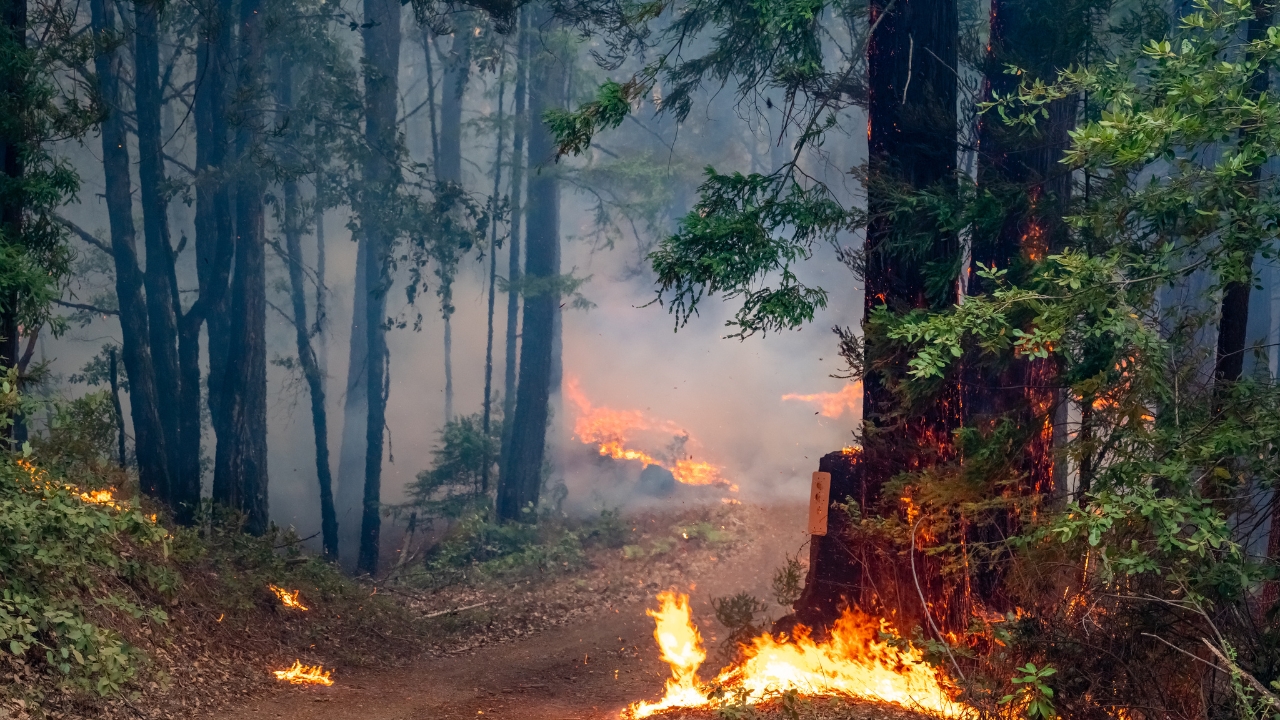
DOJ Subpoenas Challenge Federal Reserve's Autonomy
Jerome Powell cautions that DOJ's subpoenas could undermine the Federal Reserve's independence and d

Prince Edward Island (P.E.I.), Canada’s smallest province, recently lifted a fire ban that had been in place during weeks of hot, dry weather. Officials say the wildfire risk has now eased thanks to cooler temperatures and rainfall. At first glance, this decision may seem like a local update relevant only for Islanders. But in truth, it speaks to a much larger narrative: the changing climate, the rising threat of wildfires across Canada, and the delicate balance between public safety and community life.
Why the Fire Ban Was Imposed
The fire ban came into effect earlier this summer, introduced by the provincial Department of Environment and local fire authorities. The reasons were practical and worrisome:
Extended drought-like conditions: P.E.I. faced weeks of unusually warm weather with little rain. Such dry vegetation creates an easy fuel source for fires.
Canada-wide wildfire crisis: Across the country, especially in British Columbia, Alberta, and the Northwest Territories, communities faced historic wildfires that destroyed homes and forced mass evacuations. Although P.E.I. is geographically distant, officials did not want to risk a similar crisis.
Public safety priority: The ban was meant to reduce human-caused fires, which are the most common ignition source in Canada.
During the ban, Islanders were prohibited from lighting campfires, burning brush, or engaging in any outdoor burning. Except for controlled or essential activities, open fires were considered too risky.
The Turning Point—Why the Ban Was Lifted
Officials announced the lifting of the ban in mid-August after assessing updated weather conditions. Several natural factors allowed the decision:
Rainfall: Recent wet weather reduced the dryness of grasslands and forests, lowering the chance of rapid fire spread.
Cooler temperatures: The intensity of summer heat dropped, further reducing ignition risks.
Improved forecasting: Short- and medium-term weather models predicted more balanced moisture levels, giving fire crews greater confidence.
Still, even as the ban was lifted, officials warned that wildfire risk is not entirely gone. “Lower does not mean zero,” they said in statements, urging residents to remain careful with outdoor activities.
The Human Impact
For many residents, especially those in rural communities or those who enjoy camping, the lifting of the ban brought relief. Fires and barbecues are not only recreational but also cultural. Island summers are often marked by campfire gatherings, family barbecues, and outdoor community events. The ban, though necessary, had dampened these traditions.
Campers and tourists: Tourism plays a vital role in P.E.I.’s summer economy. Visitors often expect evening campfires as part of the island experience. Lifting the ban restores that tradition.
Farmers and landowners: Some residents rely on controlled burns for land management. A ban can interrupt routine agricultural activities.
Mental well-being: Experts have noted that strict restrictions, combined with the stress of wildfire smoke from across Canada, can heighten anxiety. The lifting of bans can help restore feelings of normalcy.
The Bigger Climate Picture
The story does not end with one ban being lifted. It connects to a wider climate crisis. Canada has faced some of its worst wildfire seasons in history over the past few years, with millions of hectares burned, billions of dollars in damages, and thousands of evacuations. Though P.E.I. rarely experiences large wildfires compared to western provinces, no region is truly safe anymore.
Changing weather patterns: Climate change is bringing hotter summers, less predictable rainfall, and conditions that favor fire ignition.
Regional contrasts: Western provinces are likely to face massive wildfires regularly. But even smaller, wetter places like Atlantic Canada face rising risks.
Long-term adaptation: Lifting bans may bring relief now, but the larger challenge is how communities across Canada prepare for future summers where bans may become more common.
Lessons for Public Policy
Lifting the fire ban teaches several lessons about policymaking in the climate era:
The Social and Economic Dimensions
Beyond safety, fire bans have a ripple effect on the economy and community life.
Tourism economy: Outdoor fires are part of the tourism draw. Bans can hurt businesses like campgrounds, rental cabins, and rural eateries.
Local businesses: Firewood sellers, outdoor equipment stores, and camping suppliers all feel the economic pinch when bans drag on.
Cultural identity: Summer bonfires on beaches or countryside gatherings around fire pits are not just pastimes—they reflect Island culture. Policies that restrict them, even temporarily, affect identity and tradition.
Comparing P.E.I. to the Rest of Canada
It is worth noting how P.E.I.’s situation fits into the national landscape:
The contrast shows why a “one-size-fits-all” approach does not work. Each region must tailor its fire policies. But the national trend is clear: every province now faces risk levels unlike those seen 30 years ago.
Global Context and Climate Awareness
Wildfire bans and their lifting are not just Canadian issues—they reflect global trends. Across the world, from California to Greece to Australia, summer fire bans are becoming common. Authorities everywhere face the same balancing act: protect communities from wildfire disasters, but avoid over-restricting daily life.